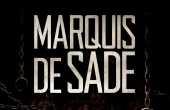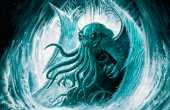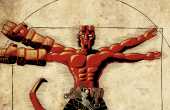DClarke
A Ph.D. student in love with thinking about heroes, monsters and all things gothic and gothic revival (Art, literature and architecture)!
Contributor II
- Plebian Penman
- Lurker
- Pssst
- Hand Raiser
- Vocal
- Sharp-Eyed Citizen
- Town Watch
- Detective Deskman
- Article of the Month
- ?
- Articles
3 - Featured
3 - Comments
101
- Ext. Comments
77 - Processed
25 - Revisions
25
- Topics
8 - Topics Taken
1 - Notes
32
- Topics Proc.
22 - Topics Rev.
3
- Points
1229 - Rank
80 - Score
835
Latest Articles
Latest Topics
arts Write this topicThe art of CalligraphyWith the video of Master Penman Jake Weidmann making its rounds on the internet, the art of calligraphy is enjoying a very moderate resurgence of interest. Why have we abandoned this art form? Is it even relevant in a day and age when computers can reproduce any form of script, in any size for any occasion on any type of paper? Can calligraphy or any form of artistic writing provide a substantial benefit for modern society and if so, should "we" reconsider teaching such forms of writing in schools?
|
Sympathy for the Villain?We all know that there cannot be a hero without having a villain but does this mean that we have to hate the villain? Sure there are those people/creatures that are truly monstrous and who want to destroy the world or inflict pain and terror but what about more innocuous villains? villains who just happen to share a different moral code than the hero? or rivals that engage in the same behaviour as the hero but happen to be on opposite sides (Gangs of New York, The Godfather). It is Manichean to see the villain as evil but are they totally unredeemable?
|
On the Morality of MonstersWe all know that Dracula is evil, Frankenstein’s monster is a brute and the hidden gods of Lovecraft drive humanity insane but could we be misinterpreting this? Harker gets a posse together to brutally slay Dracula while he is helpless, Victor Frankenstein creates his monster and abandons him and Humanity has forgotten about the Lovecraftian gods in favour of newer kinder ones. Could it be that each of these stories (and many others) can be read in an alternate way such that the "monsters" are actually mistaken, misinterpreted and working from a "good" motivation? This can transcend the canon literature and even look at modern day monsters
|
literature Write this topicThe subtleties of terror across genresWe are all aware that video game and movie adaptations take liberties with source material (the literature that they are drawn from) but how does a scary piece remain scary? When a reader engages with the text, terror and horror come from anticipation and foreshadowing. Video game users are directly engaged in making decisions and movie watchers are observers of somebody else’s vision of the "creature". In what ways does terror/horror translate across media? what makes something scary when it is taken outside our realm of imagination? Does horror/terror run the risk of being campy or cliché because it is no longer on the page?
|
comics Write this topicAnimals as symbols for humanityIt is not a new idea to have talking animals as characters in literature. Animal Farm is probably the most famous example but there have been more than just this. With the rise of comics/graphic novels we see emotionally stirring and intricate portraits of humanity being played out. The events of Maus, Squarriors and others are undeniably political, emotional and social. Why would an author and artist use animals as the main subject of their works when most of the time the plot/meaning of the work revolves around human experience? Is this a way to distance readers from the action so they focus on the main plot points or is this a way to make readers pay closer attention? |
arts Write this topicWhere does gothic and fantasy meet?Gothic novels of the 1790s and beyond are characterized by certain medieval and fantastic circumstances "furnishings", which makes them easy to recognize. The modern world, however, has blurred that line and contemporary gothic is often conflated with fantasy. Why are fairies and dragons now seen as being gothic? why is there a preoccupation with fantastic creatures instead of monsters? Analyze historical periods or pieces of fiction that best represents this turning point. Art work/websites like Alchemygothic.com may be a good starting point.
|
Published | literature Write this topicWhat is next for the figure of the monster?Generally speaking monsters have had an ideological or didactic purpose. Ancient monsters taught us about social ill, medieval monsters were often used to demonstrate religious doctrines and enlightenment monsters taught the public something about the dangers of science. Contemporary monsters, however, seem to be much better looking and a whole lot friendlier (Twilight, Teen Wolf). What has this done to the meaning of monsters? Do they still teach us something? If monsters are going to be friendlier then what "should" we be scared of/ what is taking the place of traditional monster?
|
literature Write this topicE.L. James V.S Marquis De Sade: Who did it better?Both the Marquis De Sade and E.L. James have garnered attention for their explicit sexualized literature. The Marquis crafting perverse pieces in the late 18th century and James writing hers in the 21st. Each of these authors claiming the reason behind their writing is liberation; the Marquis for liberation from an oppressive regime and James liberation from oppressive masculine hegemony. But who did it better? This is not an uncritical question of who had the more titillating stories, but who used their literature to best define sexual politics in their time. Is one more eloquent than the other? Do they share a common ground of exploration? Does the sublime play a role in both of their writings? These questions not only point to the changing relationship society has with sexuality but also how sexual politics continues to be a major source of debate.
|
Latest Comments
| The Lost Civilization of Pottermore | |
Great work. It was fun but informative and really well thought out. I think that the zombie really has become the monster of the moment and you touch on a lot of reasons why. Excellent contribution! | The Zombie Invasion of Pop Culture: They Want Your Brains |
Very interesting. I like how you touch on the IP of the whole thing. I know that there are issues with intellectual property when fans create things as well as when design and programming students create games. It is a difficult area of both art and law. | Pokémon: The Unique Experience of Fan-Made Games |
I think that horror has to operate on some degree of stereotyping, it is essentially built in to the fabric of the gothic. It is always interesting to see how far creators/writers take the stereotypes and how well they handle them. I agree that Scream Queens uses these old stereotypes but they are at least attempting to modernize them and bring in issues that are relevant. Nice article. | Scream Queens: Sorority Girl Stereotypes |
Great article! I especially love your conclusion. I think that you really nail it on the head and come through with an amazing analysis. | Why We Love Harley Quinn: Dissecting the Nature of DC’s Most Complicated Woman |
very well done. I think that you have completed a really nice and well written character study here. | The Awakening: Where does the dream lie in Marriage, or Lust, or Freedom? |
Nice article. You definitely give him a fair shake and explain why it is difficult for a director to maintain critical success after starting off at the top. It is a shame that the interesting concepts he has in his movies tend to just become stagnant and childish under his control. | The Rise and Fall of M. Night Shyamalan |
Very interesting. I think that it is an important message to keep in mind that communication can be more than just a letter and the way we send messages is just as relevant. | The Modern Translation of Writing |



What a thorough and well researched article. You presented this amazingly! it makes me want to protest the take-down/changes that have occurred.